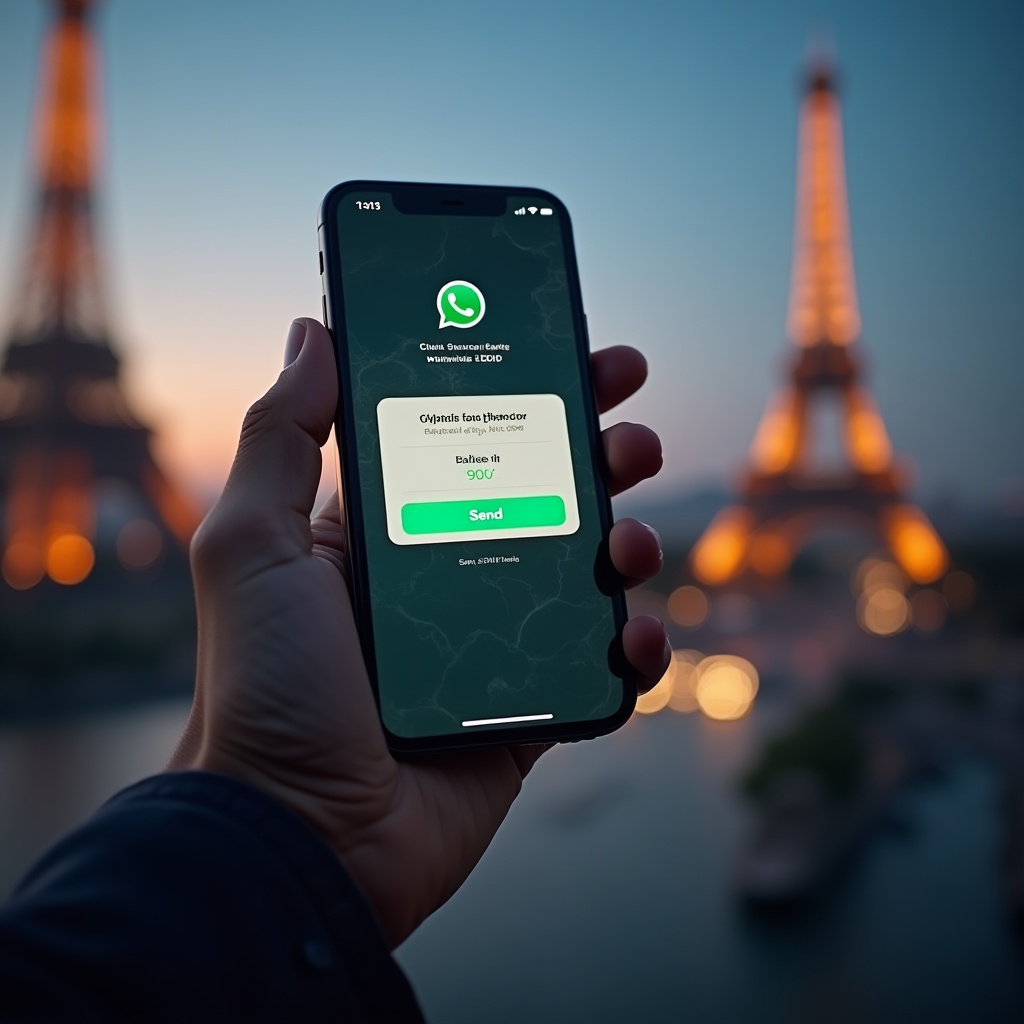Imagine tapping the ever-familiar WhatsApp icon and, instead of opening a chat, you’re seamlessly handling crypto transfers—sending stablecoins to friends, splitting bills across borders, or even checking balances within the same app you use to share memes. That’s precisely the vision behind WhatsApp’s crypto-wallet pilot, and it matters because WhatsApp today connects over 2 billion people across the globe on a monthly basis. With such a vast audience, integrating on-chain payments could redefine how everyday users perceive and adopt blockchain technology.
Meta first dipped its toes into crypto when it launched Novi, a digital wallet designed to facilitate low-cost, instant transfers using USD-pegged stablecoins. In December 2021, a “limited number” of U.S. WhatsApp users gained access to send and receive digital dollars directly within chats, marking the inaugural step of this pilot.
But this pilot was just the beginning. Now, speculation is mounting: could WhatsApp leverage its 2 billion-strong network to onboard a mass-market crypto audience? In this article, we’ll dive deep into why Meta is betting on on-chain functionality, trace the critical milestones of the wallet pilot, and explore what it might take for WhatsApp to transform from a messaging giant into a full-fledged crypto payments platform—potentially bringing 2 billion users onto the blockchain.
Genesis of WhatsApp’s Crypto Pilot
Meta’s Crypto Ambitions & the Birth of Novi
Meta (then Facebook) first unveiled its blockchain vision in 2019 under the Libra initiative, aiming to create a global digital currency backed by a consortium of companies. After regulatory pushback forced Diem’s scale-back, Meta rebranded its payments arm as Novi in mid-2021, positioning it as a standalone digital wallet for stablecoins rather than a full cryptocurrency ecosystem. Novi leveraged Paxos Trust Company’s U.S. Dollar–pegged stablecoin (USDP) for transfers, promising instant, fee-free peer-to-peer payments—an offering tailored to markets with high remittance flows.
Initial Pilot Launch (December 2021)
On December 9, 2021, Meta announced a “limited number” of U.S. WhatsApp users could send and receive USDP through Novi without ever leaving their chat window. The in-chat payment UI appeared under the paper-clip (Android) or “+” menu (iOS), where testers could link their Novi accounts, complete KYC, and transact with friends at zero fees. This WhatsApp pilot followed a six-week standalone Novi test in both the U.S. and Guatemala—marking the first time a major global messaging app natively integrated on-chain transfers. While Meta cited positive early feedback, it kept the pilot scope narrow, focusing on ironing out UX kinks and compliance workflows before any broader rollout.
Current Pilot Status
As of mid-2025, WhatsApp’s crypto-wallet pilot remains confined to a very small, invite-only group within the United States, with no broader in-chat rollout beyond these borders.
Geographic Availability
The pilot is exclusively available to a limited number of WhatsApp users in the U.S., activated through in-app updates on both Android and iOS. Despite Novi’s standalone availability in Guatemala, the in-chat wallet feature itself has never been enabled there—instead, Guatemalan users must continue using the separate Novi app. No additional countries have been added since the December 2021 launch phase, underscoring Meta’s cautious, compliance-driven approach.
Eligibility & User Caps
WhatsApp has not publicly disclosed the exact size of its tester pool, referring only to a “limited number” of U.S. accounts granted access. Enrollment hinges on in-app invitations: testers see a new “Payment” option under the paperclip (Android) or plus-icon (iOS) menus once their account is whitelisted. Prospective testers must complete a full KYC process through Paxos before converting fiat to Pax Dollar (USDP) and activating the wallet within chats. There is no indication that WhatsApp plans to open the pilot to additional testers in the near term, reflecting ongoing regulatory diligence.
Launch Timing & Availability: Key Details
Timeline of Pilot Phases
Standalone Novi Pilot (October–November 2021): Meta launched Novi as a separate digital-wallet app in the U.S. and Guatemala, allowing early users to link debit or credit cards, pass Paxos-driven KYC, and transact in Pax Dollars over six weeks. In-Chat Wallet Integration (December 9, 2021): A “limited number” of U.S. WhatsApp users saw a new “Payment” option inside chats, enabling zero-fee USDP transfers directly in the messaging interface. Post-Pilot Stabilization (Early 2022–2025): Following initial feedback, Meta paused geographic expansion to refine compliance workflows and ensure end-to-end encryption integrity, with no new regions added through mid-2025.
Beta Enrollment Process
In-App Invitation Mechanism: Eligible testers receive a hidden flag that surfaces a “Payment” icon under the paper-clip (Android) or “+” (iOS) menu. APK & Beta Channels: Some participants sideload WhatsApp beta APKs (Android 2.21.22.17+) or join Apple’s TestFlight build to ensure they’re running the feature-enabled version. Paxos KYC Onboarding: Once invited, users must register a Novi account via a built-in flow, submitting government-issued ID and proof of address; Paxos vets each applicant before USDP conversion is unlocked.
Technical & Compliance Requirements
App Version Prerequisites: The wallet feature requires Android 2.21.22.17 or newer (and the equivalent iOS build) to support the integrated Novi SDK and secure key-management modules. Stablecoin Conversion Limits: Pilot testers can deposit up to predetermined caps in their Novi wallets, with all USDP balances held off-chain by Paxos under regulated custody. Regulatory Safeguards: Each transaction undergoes AML screening at Paxos, and WhatsApp enforces its privacy policy—no chat metadata or messages are shared with Paxos, preserving end-to-end encryption. No Cross-Border Transfers Yet: Although Novi’s standalone app in Guatemala supports cross-border USDP moves, the in-chat pilot remains U.S.-only, pending further legal and infrastructure clearances.
Expansion Rumors & Speculations
As WhatsApp’s U.S. pilot remains tightly scoped, attention has shifted toward when—and where—the wallet might next appear. Below, we examine key regulatory barriers, sketch the most likely markets and timelines, and surface the most credible insider leaks.
Regulatory Hurdles & Approval Outlook
United States: Meta is in early talks with multiple crypto infrastructure firms to deploy USDC, USDT, or similar assets—an initial step before any wider wallet expansion. European Union: With MiCA fully in force, any wallet feature must be licensed as a Crypto-Asset Service Provider (CASP). WhatsApp’s platform status under the EU’s Digital Services Act may prompt Meta to challenge certain rules—potentially delaying rollout. India: A crypto-wallet pilot would require RBI clearance and NPCI sign-off; formal approval may not arrive before late 2025 or early 2026.
Projected Roll-Out Regions & Dates
India (Q4 2025–Q1 2026): Expected pilot leveraging UPI rails once RBI frameworks around stablecoins are clarified. Brazil (2026): Potential trial supporting DREX or USDC, following Brazil’s CBDC initiatives and existing Mastercard partnerships. European Union (2026–2027): Phased rollout post-MiCA CASP licensing, starting with smaller member states before larger markets.
Insider Leaks & Expert Commentary
SocialMediaToday Insight: Unnamed Novi-team sources hint at a global beta slated for Q4 2025, with country additions each quarter thereafter. Code Teardowns & Beta Hints: UPI Lite strings in v2.25.5.17 suggest WhatsApp’s modular wallet framework is nearing readiness for stablecoins. Payments Industry Analysis: PSD3 and digital-euro pilot deadlines imply a European wallet test could coincide with major EU-wide CBDC trials later this year.
User Adoption Forecast
WhatsApp’s sheer scale—as the world’s foremost messaging platform—provides a unique springboard for any new feature, especially a crypto wallet. With over 2 billion monthly active users already on board and projections pushing past 3 billion by 2025, even modest on-chain conversion rates could translate into hundreds of millions of active crypto-wallet users within a few quarters. However, real-world precedents—like WhatsApp Pay’s gradual UPI roll-out in India—illustrate that achieving meaningful adoption hinges on regulatory approvals, seamless UX, and trust-building efforts. Below, we quantify the addressable market and benchmark against WhatsApp Pay’s performance in key markets.
Addressable Market: 2 Billion+ MAUs Baseline
Global MAU Footprint: WhatsApp surpassed 2 billion MAUs worldwide by early 2024 and crossed 3 billion by May 2025. Projected Growth: Industry analytics forecast ~3.2 billion users by end-2025, driven by emerging-market smartphone adoption. Initial Pilot Scale: The current crypto-wallet pilot engages only a limited number of U.S. accounts—likely under 100 million—representing under 5% of U.S. MAUs. On-Chain Conversion Scenario: A 10% conversion rate yields 200–320 million active on-chain users, dwarfing incumbent crypto wallets.
Comparison with WhatsApp Pay (India/Brazil UPI)
India’s UPI Roll-Out: Launched in early 2020 with a 40 million cap, raised to 100 million, then removed in late 2024—unlocking payments for 500 million Indian WhatsApp users. Adoption Timeline: Two years from approval to cap removal, reflecting extensive regulatory coordination and UX refinements. Benchmark Metrics: UPI processed 13 billion transactions in November 2024; WhatsApp Pay’s market share remains below 10%, underscoring competitive challenges. Brazil’s Fiat Payments Precedent: Mastercard-powered P2P transfers saw slower uptake versus Pix, offering a cautionary parallel for blockchain trials.
Implications for Power Users & Early Adopters
For tech-savvy WhatsApp power users, joining the crypto-wallet pilot early isn’t just about playing with new toys—it’s a strategic move that requires proactive steps and offers distinct advantages.
Actionable Steps for Early Access & Security
Join WhatsApp’s beta channels on Android (via sideloading APKs) or iOS (through TestFlight) to increase your odds of receiving the in-app “Payment” flag. Monitor developer forums for APK teardowns and hidden feature flags. Complete the Novi-powered KYC flow promptly: have your government ID and proof of address ready. Adopt robust wallet-security practices: use multisignature setups, offline private-key backups, and encrypted storage. Keep hot-wallet balances minimal; move larger reserves to cold storage. Enable two-factor authentication and unique passwords for both WhatsApp and Novi credentials.
Potential First-Mover Advantages
Zero-Fee Transfers: Unlimited fee-free USDP transactions in-chat during the pilot. Cross-Border Remittance: Future access to Novi’s cross-border rails for global transfers. Influence Product Roadmap: Direct feedback channels for shaping UX and feature priorities. Early Access to Upgrades: First look at multi-currency support and DeFi integrations. Community Leadership: Share insights to build reputation within crypto-payments circles.
Anticipated Next Steps
WhatsApp’s crypto-wallet pilot has demonstrated technical viability and strong interest, but mass-market rollout depends on stablecoin partnerships and regulatory approvals. Meta is in advanced talks to integrate USDC across its apps—potentially accelerating expansion. USDT is also under consideration, suggesting a multi-stablecoin approach. Regulatory frameworks will largely dictate pace and geography:
EU: Must secure CASP licenses under MiCA before any beta—a European test likely in 2026. India: RBI/NPCI sign-off anticipated for Q4 2025, leveraging UPI rails with USDC support. Brazil: Stablecoin trials alongside DREX in 2026, subject to local data-localization rules.
Staying on beta channels, watching for feature-flag updates, and having KYC docs ready will position power users for the next wave of invitations. If Meta aligns stablecoin deals, compliance, and technical readiness, WhatsApp could indeed bring over 2 billion users on-chain—realizing the bold vision of “2 B users on-chain.”





